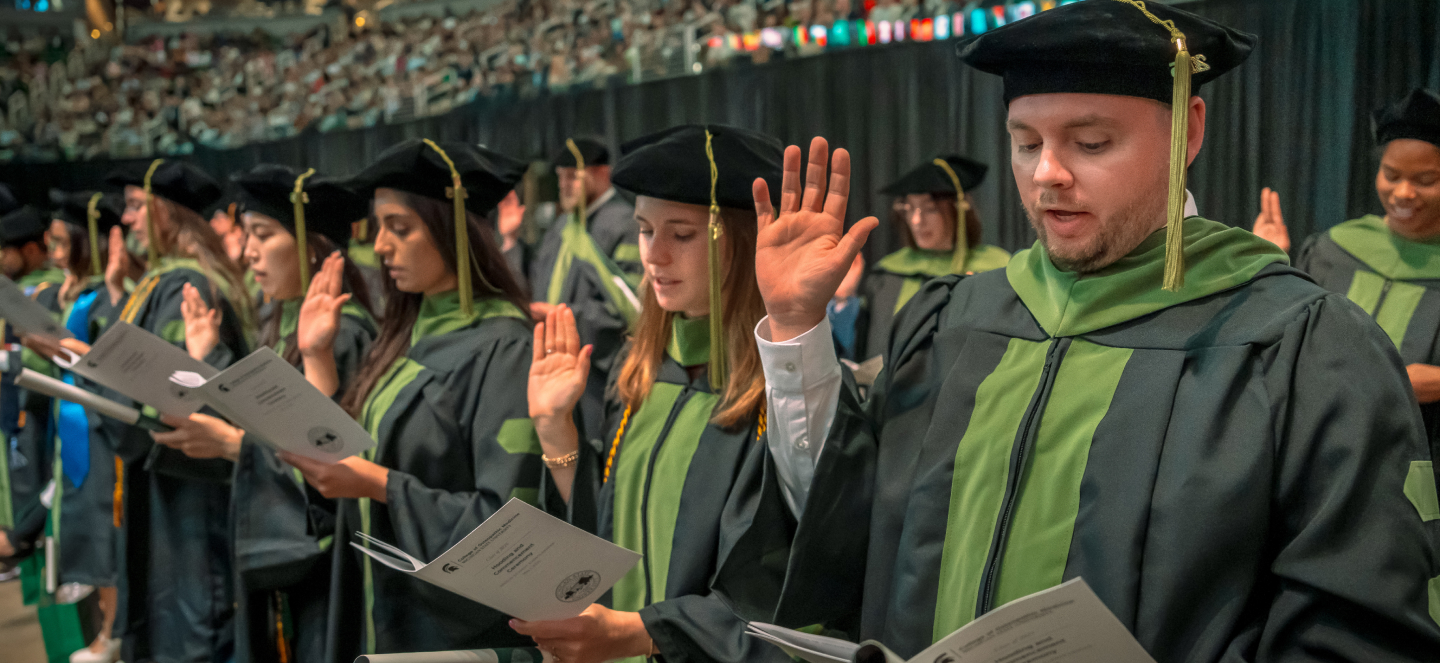From China’s Tibetan Plateau, the Mekong River flows through the borders of Myanmar, Lao People’s Democratic Republic (Lao PDR), Thailand, Cambodia and, finally, Vietnam, where it empties into the South China Sea. According to the Mekong River Commission, nearly 52 million people rely on the river and its resources. But when environmental, human, and animal health intersect, the door opens to complex issues – and the Mekong is no exception. The river, and those who depend on it, struggle with challenges, such as food and livelihood security, new and emerging diseases among humans and animals, water and other environmental pollution, climate change and energy security, among others.
Started in 2022 and funded by the U.S. Department of State’s Bureau of East Asian and Pacific Affairs, Michigan State University’s Mekong One Health Innovation Program (MOHIP) is focused on improving health security in three countries along the river: Lao PDR, Thailand and Vietnam. To do this, faculty from the MSU College of Osteopathic Medicine Institute for Global Health and the MSU College of Agriculture and Natural Resources and their stakeholders are working with these countries’ One Health University Networks to promote the One Health approach in research and education. One Health stresses the intertwined nature of human, animal and environmental health.
MSU’s MOHIP investigators – Furqan Irfan, Ph.D., MBBS (M.D.); Ramjee Ghimire, Ph.D.; and Qing Xia, Ph.D., M.A. – help connect U.S. health experts with science and health researchers in the lower Mekong area to create a transnational health security network to focus on the lower Mekong sub-region. This network will enable U.S. experts to share tools and resources that will inform health security practice and policy decisions while bolstering One Health research and education initiatives in Lao PDR, Thailand and Vietnam. Additionally, MOHIP builds people-to-people engagement by fostering collaboration between U.S. and Mekong researchers.
“Our overarching goal is to connect Mekong researchers with experts in the U.S. and to build their local capacity for research and education to improve health security,” said Dr. Ghimire, who serves as a specialist for Global Outreach and Network in the College of Agriculture and Natural Resources, as well as an adjunct faculty with the Institute for Global Health.
MOHIP currently funds three $30,000 research projects:
Ghimire said the MOHIP team expects to fund more One Health- and health security-focused research projects in the lower Mekong sub-region and offer more educational opportunities in its second year.
“In one week, we received 60 applications for our next [year 2] short course,” Ghimire said. “We previously covered topics like One Health principles and practices and competency of One Health professionals, as well as topics on specific health concerns including climate change and neglected tropical diseases and how they have direct ties to One Health.”
Other key MOHIP activities include a monthly webinar series that focuses on health security issues and a virtual course for Mekong researchers and students titled “Health Security, One Health and Zoonoses” (diseases passed between animals and people). In addition, MOHIP has an outreach component, which disseminates and promotes relevant One Health messages to communities in Lao PDR, Thailand and Vietnam.
Ghimire notes the importance of MSU’s collaborators, especially the One Health University Networks on the ground. “We’re working with them to reach out to as many people as possible because they already have the connections – Vietnam has about 15 member universities, Lao PDR has five and Thailand has 14 universities,” Ghimire said. “Our stakeholders have greatly appreciated this effort, and we all hope to continue building inclusivity to promote the program.”
MOHIP will continue until September 2025, at which point the program will culminate with a symposium for researchers, collaborators and stakeholders to showcase their sponsored work and share findings. Health experts, practitioners and government officials from Mekong countries who attend the symposium will be able to use the findings to make informed decisions that streamline the One Health approach to strengthen and sustain their health systems.
MOHIP is funded by an $857,026 grant from the U.S. Department of State’s Bureau of East Asian and Pacific Affairs’ Mekong U.S. Partnership Program (MUSP). For more information about MOHIP, visit the Mekong One Health Innovation Program web page.
Get the latest updates on our programs and initiatives.


